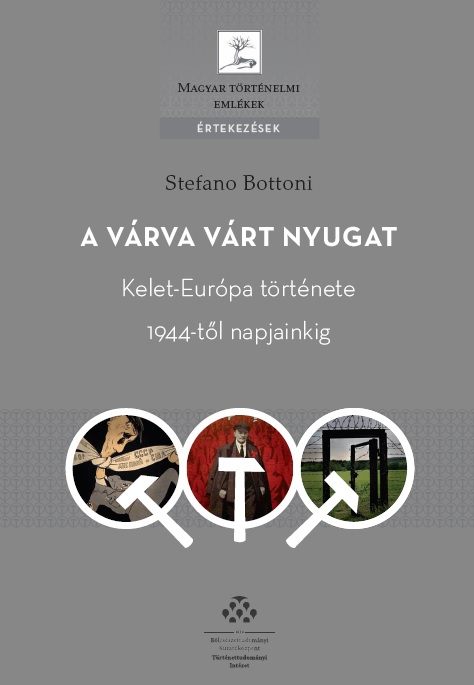 The RCH Institute of History has published the newest volume of the serial Monumenta Hungariae Historica entitled "The Long Awaited West. Eastern Europe since 1944" (Budapest, 2014. [Magyar Történelmi Emlékek - Értekezések. 11.]) by Stefano Bottoni, senior research fellow of our institute and an expert of political and social history of Hungary and Romania during the Communist period. The book is a critical synthesis of the rich and contradictory history of the Eastern half of the continent since the Soviet military occupation up to present days. The six chapters combine a thematic and chronologic approach, focusing on key events but also trying to describe how political and diplomatic events, from the creation of the Soviet Bloc to the recent economic crisi, have affected the lives of millions.
The RCH Institute of History has published the newest volume of the serial Monumenta Hungariae Historica entitled "The Long Awaited West. Eastern Europe since 1944" (Budapest, 2014. [Magyar Történelmi Emlékek - Értekezések. 11.]) by Stefano Bottoni, senior research fellow of our institute and an expert of political and social history of Hungary and Romania during the Communist period. The book is a critical synthesis of the rich and contradictory history of the Eastern half of the continent since the Soviet military occupation up to present days. The six chapters combine a thematic and chronologic approach, focusing on key events but also trying to describe how political and diplomatic events, from the creation of the Soviet Bloc to the recent economic crisi, have affected the lives of millions.
The main point made by the author is that Eastern Europe is not an immanent concept and has not formed a homogeneous region throughout the last century. Nevertheless, some peculiarities and dysfunctions in the political and socio-economical development of this area can be easily spotted. This is why one is possible to argue that in some way "Eastern Europe" does still exist as a forced community of postcommunist and post-soviet countries, who find now themselves at periphery of the Western cultural and material civilization.



